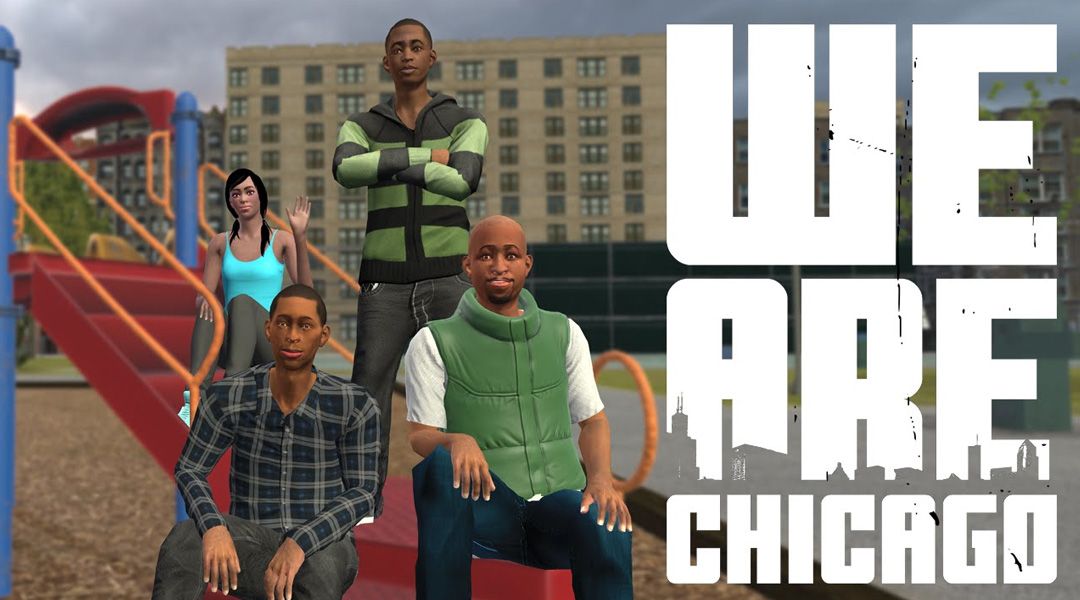Culture Shock Games aims to take gamers on a tour through the tough life of Chicago's youth in We Are Chicago, but the game struggles to do its subject material justice.
We Are Chicago aims to bring a focus to the fact that the city of Chicago's problems lie beyond a simple law and order solution - socially, there are systemic barriers in place for Chicago youth that demand a more pragmatic approach to fix. Players get to experience such barriers first-hand in the 2-3 hours it will take for them to go through a week or so in the life of Aaron, a Chicago teenager approaching highschool graduation in We Are Chicago. As the big day approaches, everything from the dangers of gangs recruiting high school students, the necessity of a part-time job to help support his family, and trying to put on a brave face for his little sister will all come to a climax in this Chicago-centric educational entertainment title.
Developer Culture Shock Games built the plot and dialogue around the studio's experience from interviewing several Chicago residents and local non-profit organizations, though this dialogue often presents itself in a pretty heavy-handed after-school format, which is roughly what We Are Chicago ends up being. Within the game, players will find materials from nonprofit organizations like Reclaim Our Kids and All Stars Project of Chicago, which are both set to receive a portion of the game's profits. Good-nature intentions aside, however, We Are Chicago stumbles when it comes to presenting a polished and ultimately memorable gameplay experience, failing to capitalize on the depth of its poignant subject material.
As one might have expected in a game that places such an emphasis on its interview-curated dialogue, most of We Are Chicago is spent listening to characters talk and discussing things like college, work, gangs, and the importance of friends and family. While all of the characters Aaron interacts with are voiced, Aaron himself is not, which sometimes leads to some awkward conversational pacing due to awkward-feeling moments of silence. Plenty of the game takes place in on-the-rails slow walks down neighborhood streets, a process that will leave gamers frustrated with its excruciatingly slow pace as the game slowly attempts to build up its character depth.
Things take a turn for the perplexing when players are forced to go through awkward 'shift work' segments of gameplay, which have players them orders at a local fast food joint and counting change for customers. Here, the gameplay comes to an obvious halt and players who were invested in the storyline will begrudge Culture Shock Games for the way it tried to show that Aaron was stuck doing tedious work in a dead end job - the message gets received, but at the sacrifice of any semblance of pacing the game had managed to build. The same can be said for some of the other random mundane tasks players will perform throughout the game, like placing table utensils for dinner or aimlessly telling Aaron what to be distracted by during his school tests.
Fans of TellTale Games will see a familiar notification system present in We Are Chicago, as the game will tell players things like 'someone will remember this' or 'someone appreciates that'. The difference here, though, is that TellTale Games objectively shows that these choices made a difference, and that the player's conversational choices will split the game into different paths down the road. This sense of impacting the potential outcome isn't present in We Are Chicago, and we're still not sure if this notification system harbored any actual gameplay-related functions with it, as it seemed to be aimless flavor text.
Graphically, We Are Chicago lies somewhere between a Grand Theft Auto: San Andreas modification and Gone Home. Gamers willing to purchase the educational drama probably won't be in it for the graphics, which would be forgivable as a whole if the the engine didn't keep rendering quite a few hiccups as the game progressed. During one of the final scenes of the game, a man was gesturing with a gun that started to levitate in the air a few feet in front of him, ruining the gravitas of one of the game's final - and, unfortunately, predictable - moments.
At its heart, We Are Chicago offers an important message about the dangers facing inner-city youth in the Chicago area, but despite its good intentions the game fails to leave a lasting impact. Some players may find themselves feeling intertwined with Aaron's life as the game progresses, which makes it such a shame that little graphical bugs and glitches show the lack of polish in We Are Chicago, and long bouts of downright boring content and awkward pacing undermine the themese. We Are Chicago feels most appropriate on a school shelf, but it's a hard sell for consumers who aren't being graded on participation.
Trailer
[embed width="800" height="450"]https://www.youtube.com/watch?v=ArQSNSm6Tx0[/embed]
We Are Chicago is available now for PC, Mac, and Linux. Game Rant was provided a PC code for this review.

